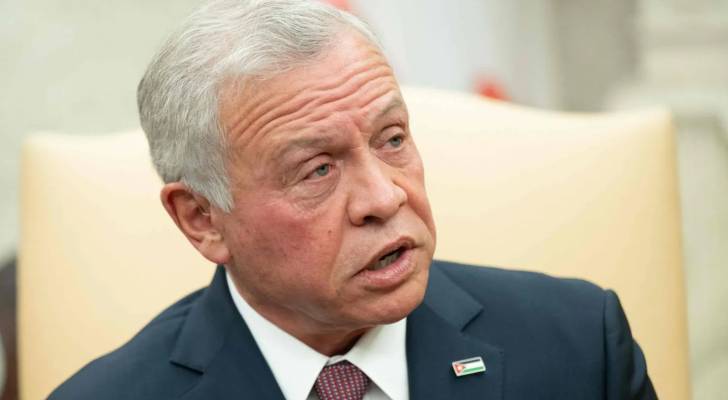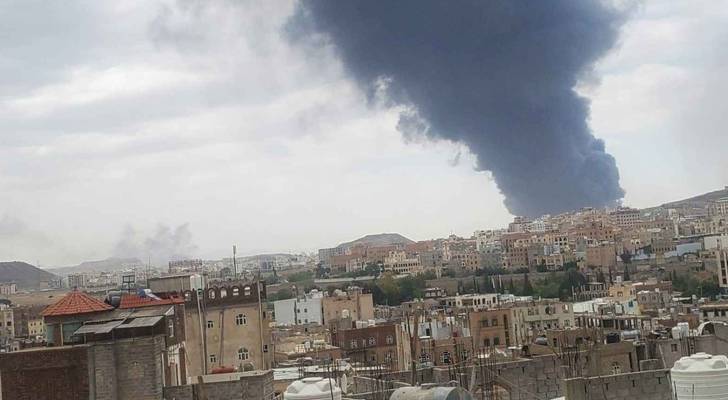Lower House passes recommendations on Audit Bureau’s 2022-2023 report, Virtual Assets Regulation Law
The Jordan Times
AMMAN — The Lower House passed on Monday the recommendations of its Finance Committee regarding the Audit Bureau's reports for the years 2022 and 2023.
The committee's recommendations include the formation of a permanent committee tasked with monitoring the spending of financial allocations for capital projects funded by loans and grants. The aim is to ensure that borrowing costs do not rise due to project delays or the failure to secure full funding from grants, the Jordan News Agency, Petra, reported.
The committee has also recommended that grant and loan agreements be aligned with relevant laws and called for conducting feasibility studies for capital projects, and for halting the transfer of financial allocations between projects that do not yield significant results. It also highlighted the importance of implementing water loss reduction projects.
MP Awni Zou’bi, the committee’s rapporteur, said that "the lack of cooperation between the concerned departments and the Ministry of Public Works has contributed to delays in project completion, higher borrowing costs, and financial penalties,” calling for holding accountable those behind “administrative negligence.”
The committee also called for a review of contract terms to identify weaknesses and address instances of negligence in fulfilling contractual obligations. “The arbitration decisions had resulted in payments of around JD73 million from the Treasury in connection with 108 concluded cases,” Zou’bi said.
The committee has also recommended a review of the objectives and financial sustainability of the state-owned companies in which the government holds a 50 per cent stake to ensure that they do not incur further losses that could burden the Treasury in the future, according to Petra.
The committee emphasised the need for state-owned companies to comply with corporate law, issue financial statements in accordance with legal deadlines, and adopt strategies to reduce operating costs.
Also on Monday, the House approved the draft law on regulating the handling of virtual assets for the year 2025.
Head of the Parliamentary Committee on Digital Economy, Hussein Khreisha, said the draft law “will not prevent citizens from trading in virtual currencies and licensed platforms, hailing the dedicated follow-up by HRH Crown Prince Hussein for the attention he pays to the digital economy and virtual assets.
He said that the issue plays an important role in empowering Jordanian youth with modern tools and enhancing their role in building a knowledge-based and innovative economy. He added that passing the Virtual Assets Regulation Law is a pivotal step aligned with Royal directives calling for keeping pace with global technological advancements and enhancing Jordan’s standing in digital innovation.
He pointed out that the law is no longer a “deferred option, but a pressing national necessity in light of the official ban on this type of transaction, especially with regard to the growth in citizen activity in the field.”
“Estimates suggest that over 100,000 Jordanians trade virtual assets through global platforms, with a transaction volume nearing JD900 million,” he said.
Minister of Political and Parliamentary Affairs Abdul Moneim Odat said that the law requires service providers to be legal entities and to register a company in Jordan, with known capital, budget, and location, to ensure a legal framework for those dealing with such companies and to provide legal and rights-based guarantees.
He added that the law will regulate dealings in virtual assets instead of leaving them unlegislated, saying, “Today, this law enters Jordan’s legislative environment, and in its minimum form, aligns with all other existing legislation. The law is in the interest of citizens dealing in virtual assets.”
Minister of State for Economic Affairs Muhannad Shehadeh said that one of the main reasons behind the draft law “is the large volume of trading by Jordanians through digital platforms based outside of Jordan, estimated at around JD900 million.”
Latest News
-
 India's strikes kill 26 in Pakistan, raising war fears between nuclear neighbors
India's strikes kill 26 in Pakistan, raising war fears between nuclear neighbors
-
 Final prayers, reflection before conclave begins in Vatican
Final prayers, reflection before conclave begins in Vatican
-
 King begins series of Capitol Hill meetings in US visit
King begins series of Capitol Hill meetings in US visit
-
 India says its missiles hit sites in Pakistan and Pakistan-controlled Kashmir
India says its missiles hit sites in Pakistan and Pakistan-controlled Kashmir
-
 'Israel' bombs 10 sites across Yemen, including Sanaa airport
'Israel' bombs 10 sites across Yemen, including Sanaa airport